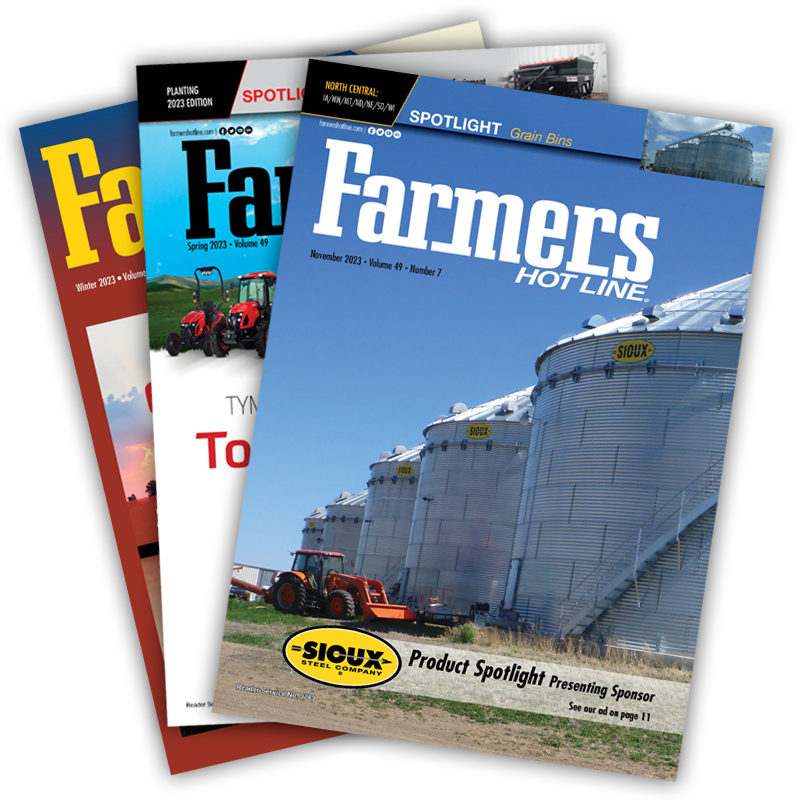Ag & Politics - What Does Agriculture Have To Do With Food Anyway?

It took the U.S. Congress a long time to agree on the Agricultural Act of 2014. The biggest sticking point was food assistance.
With the "Food for Peace" legislation in 1954, the U.S. got into the business of international food assistance. In 1964, it created the Food Stamp Act. And it wasn't until the Agriculture and Consumer Protection Act of 1973 that Congress routinely included food assistance programs in its periodic update of "farm programs".
The 1970s was a highly inflationary decade. Consumers were sensitive to rising prices and, of course, food was a particular concern. Farmers were concerned about keeping output prices ahead of input prices. Putting together the political interests of farmers and consumers helped to pass laws that were helpful to both. This logic was unquestioned until recently. As I look at it, it seems to me that the folks who want to split farm from food really want one of those policies to prosper and the other to go away. How agriculture and food advocates talk to each other will become increasingly important going forward.
WIC & SNAP
Many of us involved in agriculture frequently roll our eyes at how poorly the general public understands farming and where food comes from. Sometimes it goes in the other direction too, though. In our zeal to support agriculture, we sometimes push hard enough to strain our credibility with consumers.
A case in point involves two issues that came up this summer in the development U.S. Department of Agriculture appropriations. These are the bills that tell the USDA how much it can spend on "discretionary" items, including such mundane things as salaries and office supplies. But also programs that have a fixed budget, like the Special Supplemental Nutrition Program for Women, Infants, and Children (WIC).
WIC is a relatively small program targeted to low-income pregnant women, lactating mothers, and very young children. It is intended to help babies get the special nutrition they need to ensure adequate birth weight and a good start in life, and to make sure that mother’s needs are met at this critical time as well. WIC's purpose is narrow, where the Supplemental Nutrition Assistance Program’s (SNAP) is broad. It is targeted to specific nutritional requirements (malnourishment), where SNAP is more concerned with getting enough to eat (undernourishment).
In 2005, the Institute for Medicine, part of the prestigious National Academy of Sciences, made recommendations concerning the special dietary needs of mothers and babies. In addition to the dairy foods that have always been favored, their report encouraged increasing consumption of fruits and vegetables, but they made one glaring exception. They advised against including white potatoes in the list of vegetables approved for WIC subsidies, arguing that there was no evidence of a shortage of potatoes in the diets of mothers and babies. The USDA adopted that recommendation in its 2008 rule. The french fries hit the fan this summer with intense lobbying to remove the restriction on white potatoes.
While I like a baked potato and steak as much as the next guy, this particular debate makes me wonder if potato growers ought to reconsider what fights are worth waging. I'm pretty sure potato consumption data doesn't show any big kinks in 2008 and wouldn't kink upward if the restriction is removed. This sort of thing makes U.S. agriculture look self-serving and a little silly, and ends up undermining our ability to gain allies among advocates and legislators whose primary interest is food policy, not farm policy.
Chocolate Milk Debate
Another food fight in the appropriations process this summer relates to the school lunch program. In the last few years, federal dietary standards have become increasingly strict. Schools have been challenged to come up with new menus that are lower in fats, salt, sugar, and calories.
For many of us, the new guidelines seem excessive. But, for people concerned about high levels of childhood obesity, the sense of urgency to do something is great. The fact is learning how to eat well is no different than learning how to talk, read, or do arithmetic. It's just a whole lot easier to learn when we are very young. A lifetime of poor food choices increases chances for diabetes, heart disease, and a host of so-called lifestyle diseases that end up costing individuals and society a lot down the road. The goal is good. The question is how best to get there.
One symbol of this controversy is chocolate milk. Under 2012 federal guidelines, schools may only serve chocolate milk if it is nonfat. A recent Cornell University study of schools in Oregon found that banning chocolate milk led to a marked decline in milk consumption and a big increase in milk going into the trash can. Many people have shared similar observations from their local experiences.
The U.S. dairy industry created the National Dairy Council (NDC) in 1915 to support nutrition education and research. You won't see any NDC reports touting the benefits of soy protein or almond milk, but it is an organization that has earned and maintained respect in the broader nutrition community because it sticks to sound, science-based nutrition advice. In recent years, a number of studies are beginning to make the point that the story of milk fats are not so simple—or so negative.
AgVocates
Agriculture is at its best when it advocates food choices, like production practices, that are firmly grounded in science that demonstrates and supports their merits. We lose our credibility when we fight battles without that scientific defense. U.S. agriculture is pre-eminent in producing high-quality, safe, and healthful foods in abundance and at a good value. That doesn't mean every food manufactured in the U.S. should be consumed until we can't take another bite. We need to be at the forefront of promoting healthy eating and diets that are appropriate to our stage of life, level of activity, and other sensible nutritional needs. If we are, consumers who are far removed from the realities of agriculture will be far more likely trust us and be our allies.

